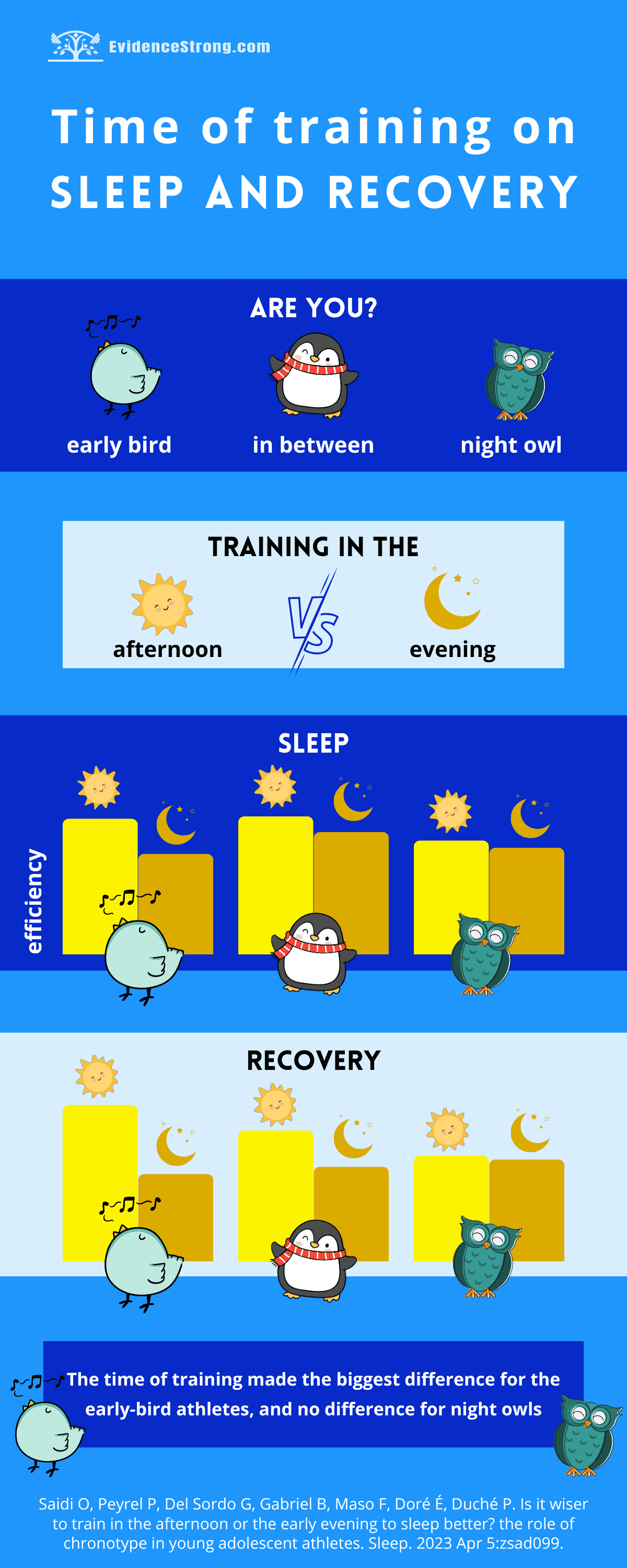Summary of a study testing how training in the afternoon versus in the evening affect sleep and wellness on the next day.
Can the timing of traing affect how you feel?
The timing of training can affect various aspects of physical and mental well-being.
This study investigated how the timing of high-intensity exercise, either in the afternoon or evening, influenced the sleep patterns, bedtime psychological state, and next-day recovery of adolescent athletes, taking into account their individual sleep preferences.
How the study was performed?
Forty-two young national level male rugby athletes (France) with different sleep preferences (early bird type = 12, in between the early bird and night owl = 14; night owl type = 16) participated in a randomized crossover study.
The study involved two testing options: one with afternoon exercise (1:00 - 3:00 pm) and another with evening exercise (5:30 - 7:30 pm). The testing option lasted for three days and was followed by a one-week break, and then athletes received the other option.
Participants maintained a fixed sleep schedule from 10:30 pm to 7:30 am, and their sleep was monitored using ambulatory polysomnography.
What was found?
The timing of high-intensity exercise significantly impacted the sleep quality of adolescent athletes. Evening exercise was associated with lower sleep efficiency and longer time taken to fall asleep compared to afternoon exercise. Interestingly, these effects varied depending on the athletes’ personal sleep preferences.
Athletes with a preference for staying up late (night owls) maintained stable sleep patterns regardless of exercise timing. However, athletes who preferred waking up early (early birds) experienced more difficulties falling asleep and reported mood disturbances following evening exercise.
How it’s relevant?
Coaches and trainers should take into account an athlete’s sleep preferences, known as their chronotype, when scheduling high-intensity training sessions.
Athletes with an early chronotype (early birds) may benefit from exercising earlier in the day to minimize sleep disturbances and mood disruptions.
In contrast, athletes with a late chronotype (night owls) may have greater flexibility in choosing training session timing, as their sleep patterns appear to be less affected.
Take home message
Original article
Saidi O, Peyrel P, Del Sordo G, Gabriel B, Maso F, Doré É, Duché P. Is it wiser to train in the afternoon or the early evening to sleep better? the role of chronotype in young adolescent athletes. Sleep. 2023 Apr 5:zsad099.
You might want to read next
Low back pain in youth weightlifters
How early can you specialize in weightlifting and still be safe in terms of injuries
